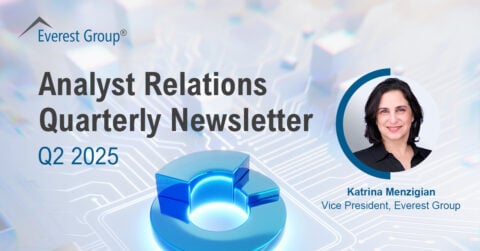
A few months ago, Workday, the enterprise HCM software company, entered into the Platform-as-a-Service (PaaS) world by launching (or opening, as it said) its own platform offering. This brings back the debate of whether using PaaS to develop applications is the right way to go as an enterprise strategy.
Many app developers turning from PaaS to APIs
While there are multiple arguments in favor of PaaS, an increasing number of application developers believe that APIs may be a better and quicker way to develop applications. Pro-API points include:
- PaaS is difficult and requires commitment, whereas any API can be consumed by developers with simple documentation from the provider
- Developers can realistically master only a couple of PaaS platforms. This limits their abilities to create exciting applications
- PaaS involves significant developer training, unlike APIs
- PaaS creates vendor platform lock-in, whereas APIs are fungible and can be replaced when needed
Containers moving from PaaS enablers to an alternative approach
In addition, the rise of containers and orchestration platforms, such as Kubernetes, are bringing more sleepless nights to the Platform-as-a-Service brigade. Most developers believe containers’ role of standardizing the operating environment casts strong shadows on the traditional role of PaaS.
While containers were earlier touted as PaaS enablers, they will increasingly be used as an alternative approach to application development. The freedom they provide to developers is immense and valuable. Although PaaS may offer more environment control to enterprise technology shops, it needs to evolve rapidly to become a true development platform that allows developers focus on application development. And while PaaS promised elasticity, automated provisioning, security, and infrastructure monitoring, it requires significant work from the developer’s end. This work frustrates developers, and is a possible cause for the rise of still nascent, but rapidly talked about, serverless architecture. This is evident by the fact that most leading PaaS providers, such as Microsoft Azure, CloudFoundry, and OpenShift, are introducing Kubernetes support.
As containers get deployed for production at scale, they are moving out of the PaaS layer and directly providing infrastructure control to the developers. This is helping developers to consume automated operations at scale, a promise that PaaS couldn’t fulfill due to higher abstraction. Kubernetes and other orchestration platforms can organize these containers to deliver portable, consistent, and standardized infrastructure components.
All is not lost for PaaS
However, given strong enterprise adoption, all is not lost for PaaS. Enterprises will take significant time to test containers as an alternative to a PaaS environment. Moreover, given that no major PaaS or IaaS vendor other than Google owns container technology, there is an inherent interest among large cloud providers such as AWS and Azure to build something as an alternative to containers. No wonder most of them are now pushing their serverless offerings in the market as an alternate architectural choice.
Which of these architectural preferences will eventually become standard, if at all, is a difficult pick as of today. Yet, while it’s a certainty that infrastructure operations will completely change in the next five years, most enterprise shops aren’t investing meaningfully in the new tools and skills that are required to make this shift. Thus, the futuristic enterprises that realize this tectonic shift will trample their competition. No ifs, ands, or buts about it.
What has been your experience with containers, APIs, microservices, serverless, and Platforms-as-a-Service? Do you think you need all of them, or do you have preferences? Do share with me at [email protected].










